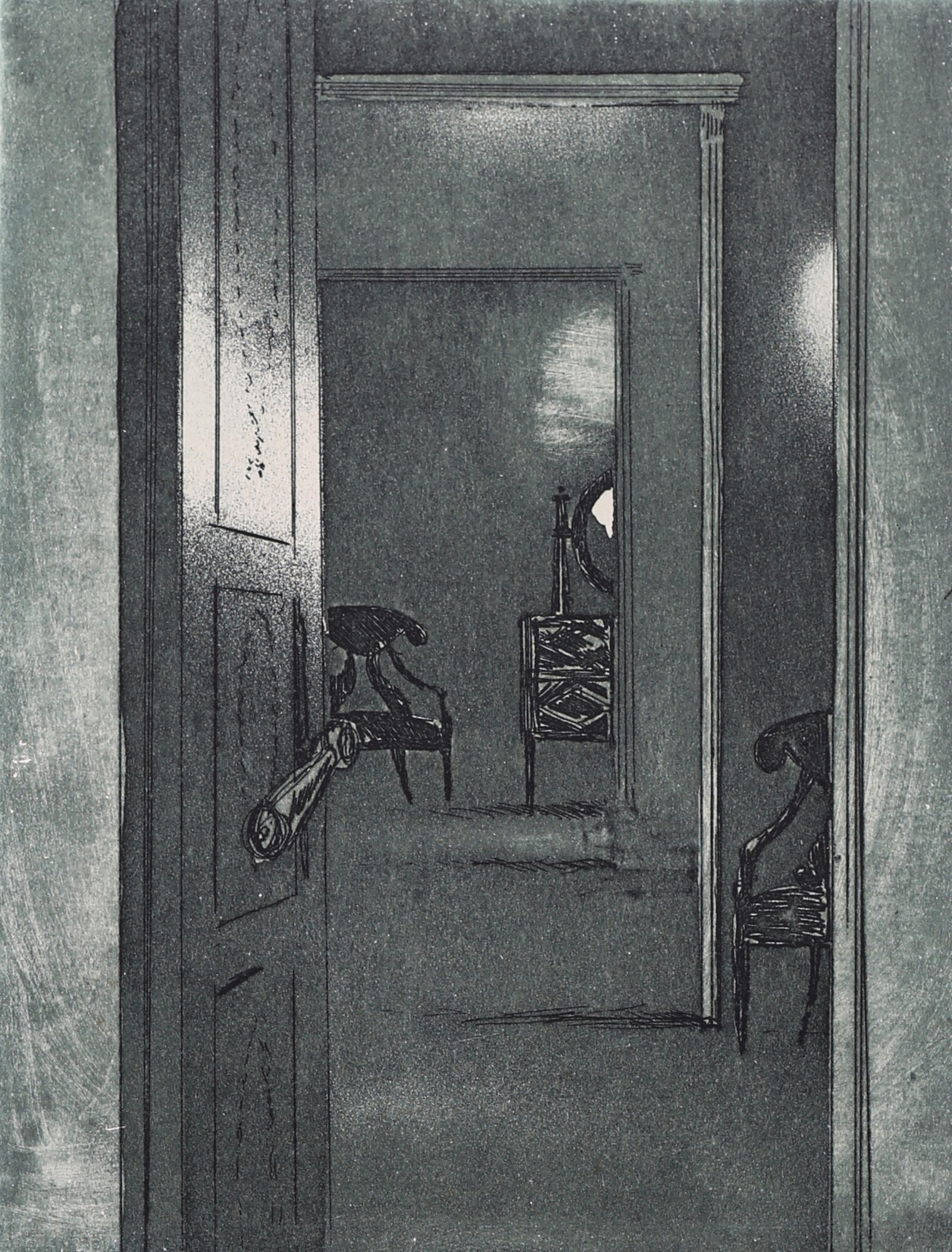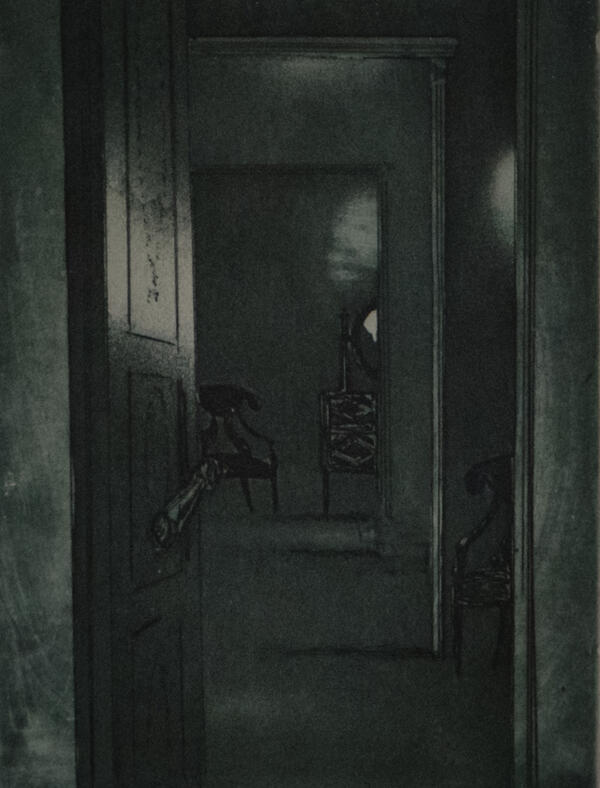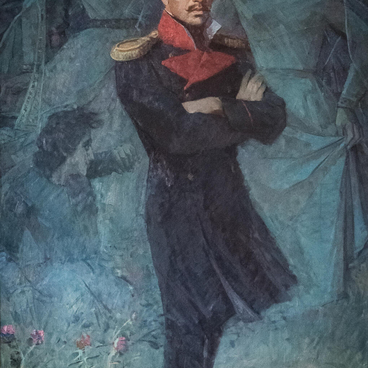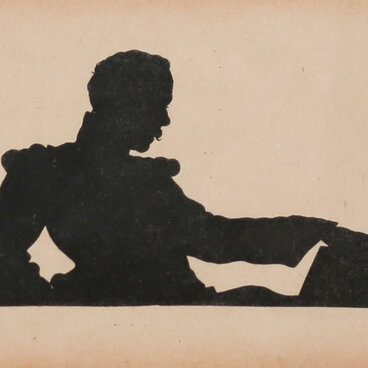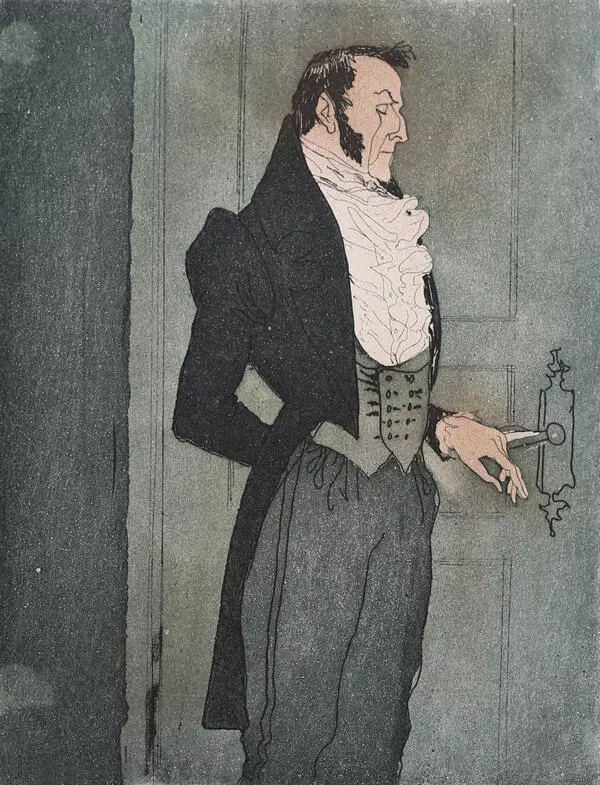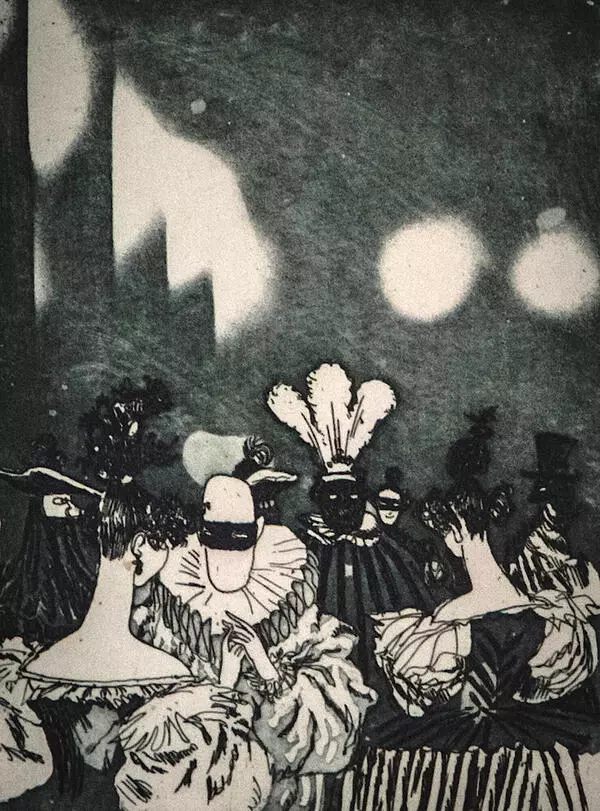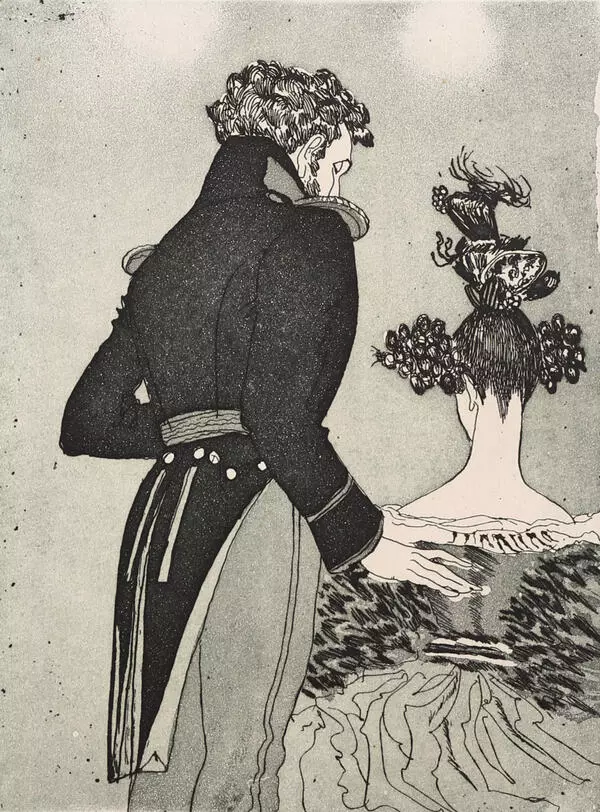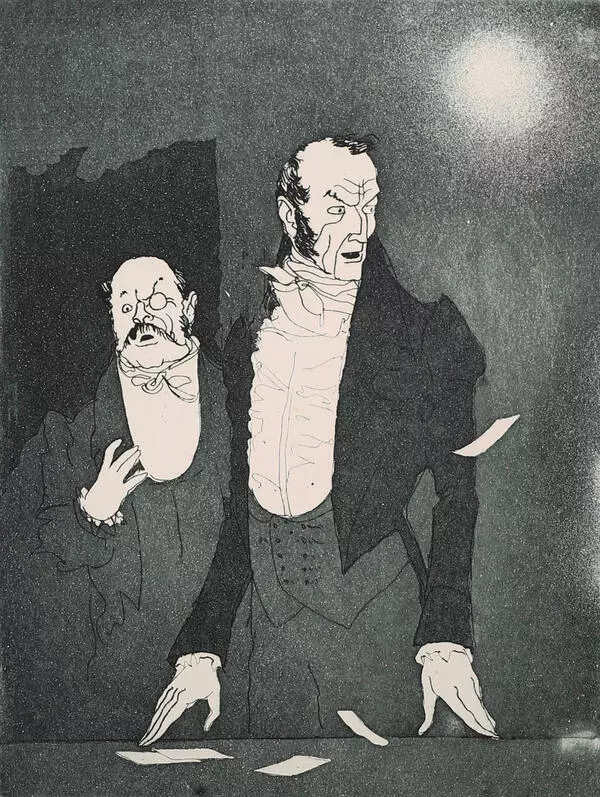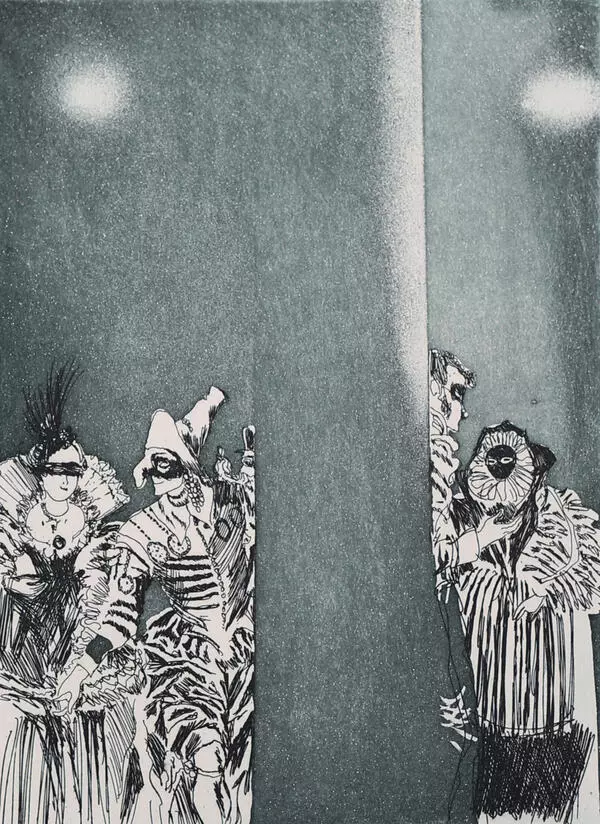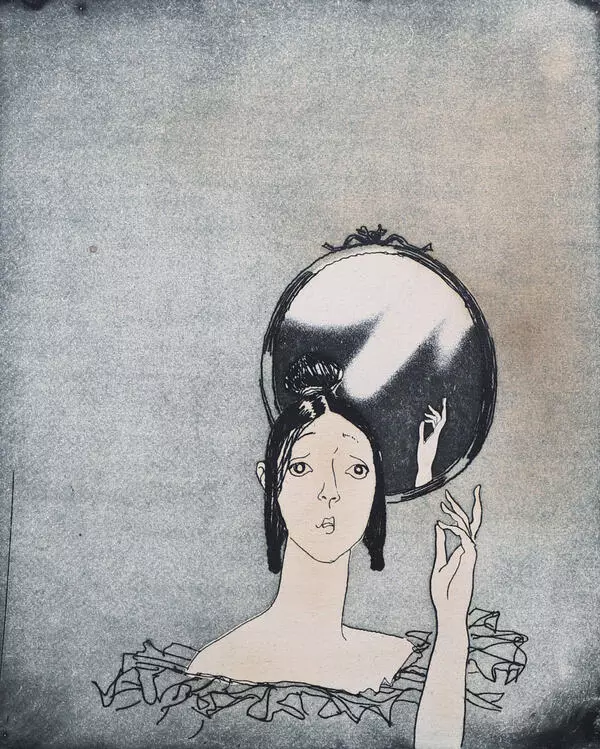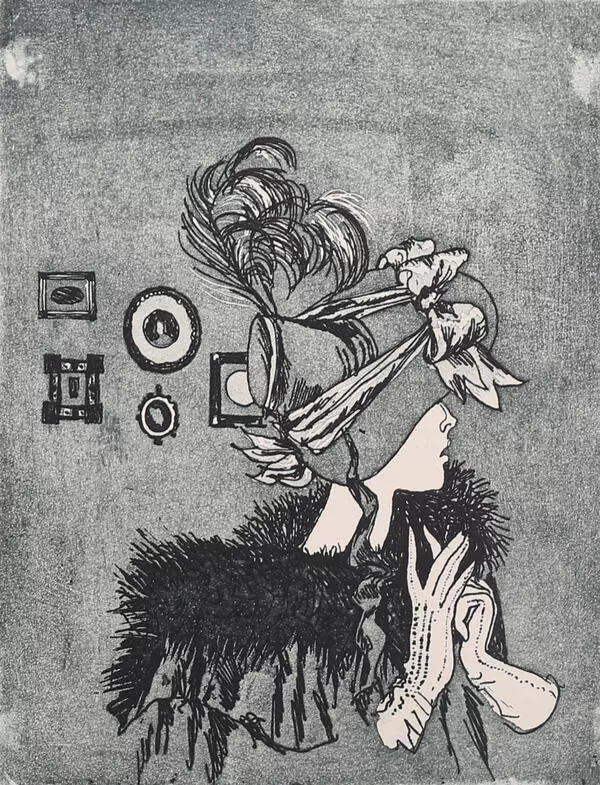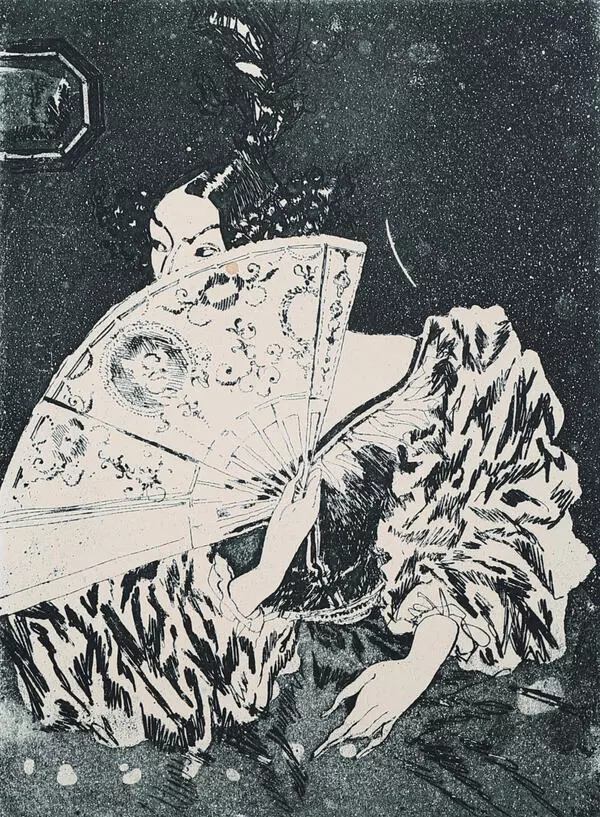Readers got hold of the play “Masquerade” by Mikhail Yuryevich Lermontov in 1842 — only seven years after it had been written. It was included in a posthumous edition of the collection of works called “Mikhail Lermontov’s Poems” that was published by Ilya Ivanovich Glazunov; however, the play underwent some changes due to censorship. The full uncensored script of “Masquerade” appeared in the book “Lermontov’s Works” that came out in 1873 thanks to Ilya Glazunov’s son — Alexander Ilyich Glazunov.
The etching by Svetozar Alexandrovich Ostrov shows an enfilade — a suite of rooms formally aligned with each other. The depths of the composition reveal an armchair and a bedside chest with a mirror. The rooms are dimly lit, in the foreground, the artist depicted an open door with a massive door handle.
Despite the original play by Mikhail Lermontov having no mention of an enfilade, it was featured in the 1914 film “Masquerade” directed by Sergei Apollinarievich Gerasimov.
The masquerade became the main character of the play not only literally, but also figuratively. There is only one scene actually showing the masquerade as a costume ball. The author’s intention was to show that the social life of the upper class was nothing more than a masquerade, or a scattered deck of cards. Nobody shows their true colors, nor do they reveal their true feelings.
Being sincere was considered bad manners in the upper society of that time. However, by covering the face with a mask, people could be more open and share their true feelings and thoughts.
Yevgeny Alexandrovich Arbenin is one of the characters in Lermontov’s play “Masquerade”. The author borrowed the surname from his early play called “A Strange Man”. The character’s first name was chosen to remind the readers of Eugene Onegin. Arbenin “went through all, knew it all, realized it all” and “was frivolous, was toiling.” When he met Nina, he felt as if he was resurrected “for life and goodness” and fell in love with her.
The gentleman Arbenin followed the society gossip far too closely, for he easily believed Sprich’s falsehood about his wife and poisoned her. Having stooped to being a murderer, Arbenin eventually lost his mind. The image of an empty enfilade is a rather accurate and expressive reminder of the irrevocability of happiness, love, and life.
The etching by Svetozar Alexandrovich Ostrov shows an enfilade — a suite of rooms formally aligned with each other. The depths of the composition reveal an armchair and a bedside chest with a mirror. The rooms are dimly lit, in the foreground, the artist depicted an open door with a massive door handle.
Despite the original play by Mikhail Lermontov having no mention of an enfilade, it was featured in the 1914 film “Masquerade” directed by Sergei Apollinarievich Gerasimov.
The masquerade became the main character of the play not only literally, but also figuratively. There is only one scene actually showing the masquerade as a costume ball. The author’s intention was to show that the social life of the upper class was nothing more than a masquerade, or a scattered deck of cards. Nobody shows their true colors, nor do they reveal their true feelings.
Being sincere was considered bad manners in the upper society of that time. However, by covering the face with a mask, people could be more open and share their true feelings and thoughts.
Yevgeny Alexandrovich Arbenin is one of the characters in Lermontov’s play “Masquerade”. The author borrowed the surname from his early play called “A Strange Man”. The character’s first name was chosen to remind the readers of Eugene Onegin. Arbenin “went through all, knew it all, realized it all” and “was frivolous, was toiling.” When he met Nina, he felt as if he was resurrected “for life and goodness” and fell in love with her.
The gentleman Arbenin followed the society gossip far too closely, for he easily believed Sprich’s falsehood about his wife and poisoned her. Having stooped to being a murderer, Arbenin eventually lost his mind. The image of an empty enfilade is a rather accurate and expressive reminder of the irrevocability of happiness, love, and life.
